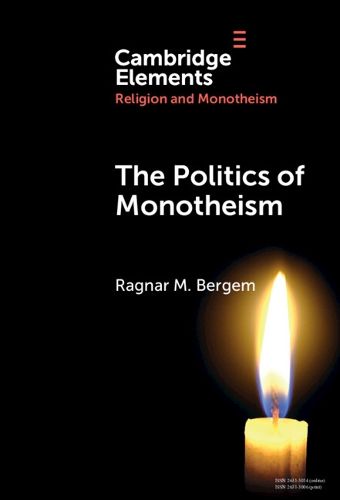Readings Newsletter
Become a Readings Member to make your shopping experience even easier.
Sign in or sign up for free!
You’re not far away from qualifying for FREE standard shipping within Australia
You’ve qualified for FREE standard shipping within Australia
The cart is loading…






Monotheism, the belief in the One True God, seems to have an ambiguous role in political life: On the one hand, monotheism may foster the inclusion of everybody, regardless of identity or background. On the other, monotheistic religions demand submission to a singular revealed truth, distinguish between faithful and the heretics, and thus seemingly promote an antagonistic and tribalistic politics. What, then, are the political implications of the monotheistic belief in absolute truth? This Element traces the Enlightenment origins of our contemporary debates about monotheism and argues that these debates reflect a deeper Western ambivalence towards religion. It does so while discussing both secular and Christian critics of the politics of monotheism. The Element contends that there is no singular politics of monotheism, and that we can only approach monotheism's political significance if we take seriously the various ways in which truth is represented in political life in monotheistic traditions.
$9.00 standard shipping within Australia
FREE standard shipping within Australia for orders over $100.00
Express & International shipping calculated at checkout
Monotheism, the belief in the One True God, seems to have an ambiguous role in political life: On the one hand, monotheism may foster the inclusion of everybody, regardless of identity or background. On the other, monotheistic religions demand submission to a singular revealed truth, distinguish between faithful and the heretics, and thus seemingly promote an antagonistic and tribalistic politics. What, then, are the political implications of the monotheistic belief in absolute truth? This Element traces the Enlightenment origins of our contemporary debates about monotheism and argues that these debates reflect a deeper Western ambivalence towards religion. It does so while discussing both secular and Christian critics of the politics of monotheism. The Element contends that there is no singular politics of monotheism, and that we can only approach monotheism's political significance if we take seriously the various ways in which truth is represented in political life in monotheistic traditions.